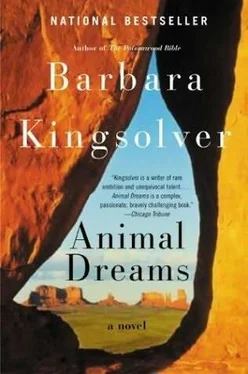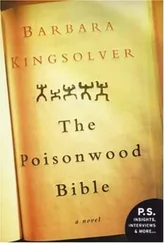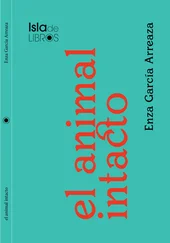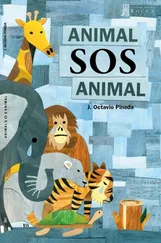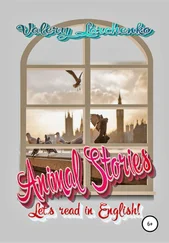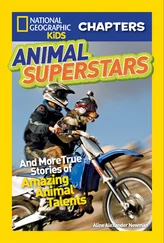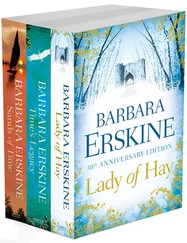“I wasn’t talking about Doc Homer.”
I shifted my field of vision to include the lower part of Loyd’s face and the blunt dark ends of his hair. A whole person seemed an impossible thing to take in all at once. How had I lived so long and presumed so much?
“I’m sorry about everything, Loyd.”
“Listen, I know how this is. You don’t think you’ll live past it. And you don’t, really. The person you were is gone. But the half of you that’s still alive wakes up one day and takes over again.”
“Why should I look forward to that?”
He turned my hand over. “I can’t answer that.”
“Well, I’m sorry, Loyd.”
“I’m sorry too.”
“Well. You’ve got to go to work.” I avoided his eyes.
Loyd took my face in one hand and put the other hand on the small of my back and he kissed me for a long time. His mouth felt cool as green corduroy, a simple thing I could understand. We began the kiss standing up, and when we finished we were sitting on the step.
“You have to go,” I said again. That was the last thing, my last words for Loyd.
When he and Jack were gone I stood for a long time looking out at the rambling jungle of the courtyard. A hummingbird, possibly the same one that had inspired Nicholas to learn to walk, was hovering at the red funnels of the trumpet vine climbing my wall. I watched the bird move stiffly up and down over an invisible path, pausing, then moving left, then up again and back, covering the vertical plane with such purpose it might have been following a map.
I felt Emelina’s presence. She stood in her kitchen door, shading her eyes, watching me. I waved, but she didn’t wave back. Her face was drawn tight with mute, unarmed rage; it must have been the worst thing she was capable of aiming at a friend. She didn’t know my tricks, that you could just buckle up your tough old heart and hit the road. My course must have been as indecipherable to her as the hummingbird’s. We are all just here, Emelina, I wanted to say. Following our maps, surviving as we know how.
The kitchen door closed quietly and I understood that it was her kindest goodbye. The sun was strangely bright on the whitewashed wall and the hummingbird hung in the air, frozen inside its moment. A photograph of the present tense.
All morning on my last day people came pecking softly at my door like mice. A legion of mice bearing gifts. It was mostly women from the Stitch and Bitch. No one else was as succinct as Emelina. They wanted to know what I would be doing, where I would live. I mentioned the art school, but wasn’t specific.
“We sure do love you, hon,” said Uda Dell. “I packed you a lunch. There’s yellow banana peppers in there from the garden. They’re not as big as some years but they’ve got a right smart bite. Stay another year,” she added.
“Do you have a good winter coat?” Norma Galvez asked me. “It snows up there. You’d just as well stay here.”
In their eyes my life should have been simple, purely a matter of love and the right wardrobe. It was as if I had fifty mothers.
In the last hour before I left I had to go through Emelina’s kitchen to retrieve a pair of jeans from the laundry room. John Tucker was folding laundry. He told me Emelina was lying down upstairs with a bad headache.
“You got a baseball game today?” I asked.
“Yeah.”
“Sorry I won’t be around to see you win.”
He smiled. In a year I’d watched him grow into his elbows and lose the better part of his shyness. His voice was beginning to crack. “Mom’s really going to miss you. She’ll be a witch for the next month. She’ll make us clean out the chicken pens and stuff.”
“It’s all my fault,” I said, grabbing a runaway corner of a sheet and helping him fold it. “You guys can send me hate mail in Telluride.”
He laughed. “Okay.”
“If it gets too bad you can run away from home. Come up and see me. We’ll go skiing.”
He hoisted his laundry basket and headed for the stairs.
When I came back out through the kitchen Viola was there at the table, lying in wait like a predator.
“Sit down,” she said. “Save your shoes.”
I was lunch meat. I sat down.
“Boy oh boy, kiddo,” she said.
“What does that mean? That I should stay here?”
“Sure you should.”
“Well,” I said.
“But nobody ever could tell you a darn thing.”
“That’s what I hear.”
“I been wanting to tell you something.”
“I know Emelina’s pissed off at me.”
She snorted. “If you don’t know that already you’re not going to hear it from me.”
“Oh.” I thought about what else she might have to reveal to me. “I know about my mother,” I said. “I know she came from here, that she was a cousin or something to Doña Althea. And that she and Doc Homer ran off.”
Viola smiled a little. “Son of a gun. He told you?”
“More or less.”
She adjusted the coil of hair on the back of her head, reclaiming its territory with the planting of a few long bobby pins. “Well, that’s not what I was wanting to tell you.”
We sat looking at each other for a good while. Her T-shirt said I WAS DEEP DISHED AT MAMA LENARDA’S. I had no idea where it might have come from.
“I’m not supposed to tell you,” she added.
“Says who?”
“Says me. Doc Homer would shoot me if he found out.”
“I don’t think there’s much danger, Viola.”
“Well, but it’s the principles.”
Now I was curious. “So, did you sit me down here to tell me something or not?”
She hesitated, shifting her weight forward onto her elbows on the table. “I was looking after you girls the day your mama died.”
“You kept us at home?”
She nodded. “I was supposed to.”
“But you didn’t.”
“I thought you had the right to say bye to your mama, like anybody else. To tell her, ‘ Vaya con Dios .’ Anybody else had no business up there, they just went to watch the show, but you had business and you was not allowed to go. Hallie was just born, she didn’t know anything anyway so I left her with Uda Dell.”
“And you took me up to the field to see the helicopter come down.”
Viola leaned back in her chair. “I’m not saying I did, and I’m not saying I didn’t.”
“What are you saying?”
“Just that you had a right. That’s all. Now, skedaddle. Que le vaya bien.”
The Greyhound was mostly empty, a dry gourd rolling across the desert, occasionally spilling out a seed or two in an inhospitable outpost: Bowie, Willcox, Benson. It was 110 degrees down there, not something people would travel through unless they were desperate to be elsewhere.
As things had turned out, Grace was not going to dry up. The women of the Stitch and Bitch had won back the river. A vice-president of the Black Mountain Mining Company called a press conference in Phoenix to announce that after seventy years of productive and congenial relations with the people of Gracela Canyon, the mine operation there was closing up shop. It was a matter of the leaching operation’s being no longer profitable, he said. The dam would be deconstructed. Naturally, if any harm had been incurred, all necessary reparations would be made to the people of Grace. He made no mention of the historic registry petition that had been filed one week earlier. So mountains could be moved. Now I knew.
When my bus paused in Willcox a woman climbed aboard and chose to sit by me, rather than take her chances on something worse that might come along, I guess. She wore an ample white jogging suit and had an odd, metallic hair color. I spent the next fifty miles in fear of a conversation I wasn’t in the mood for, but she just kept scowling at a gardening magazine.
Читать дальше
